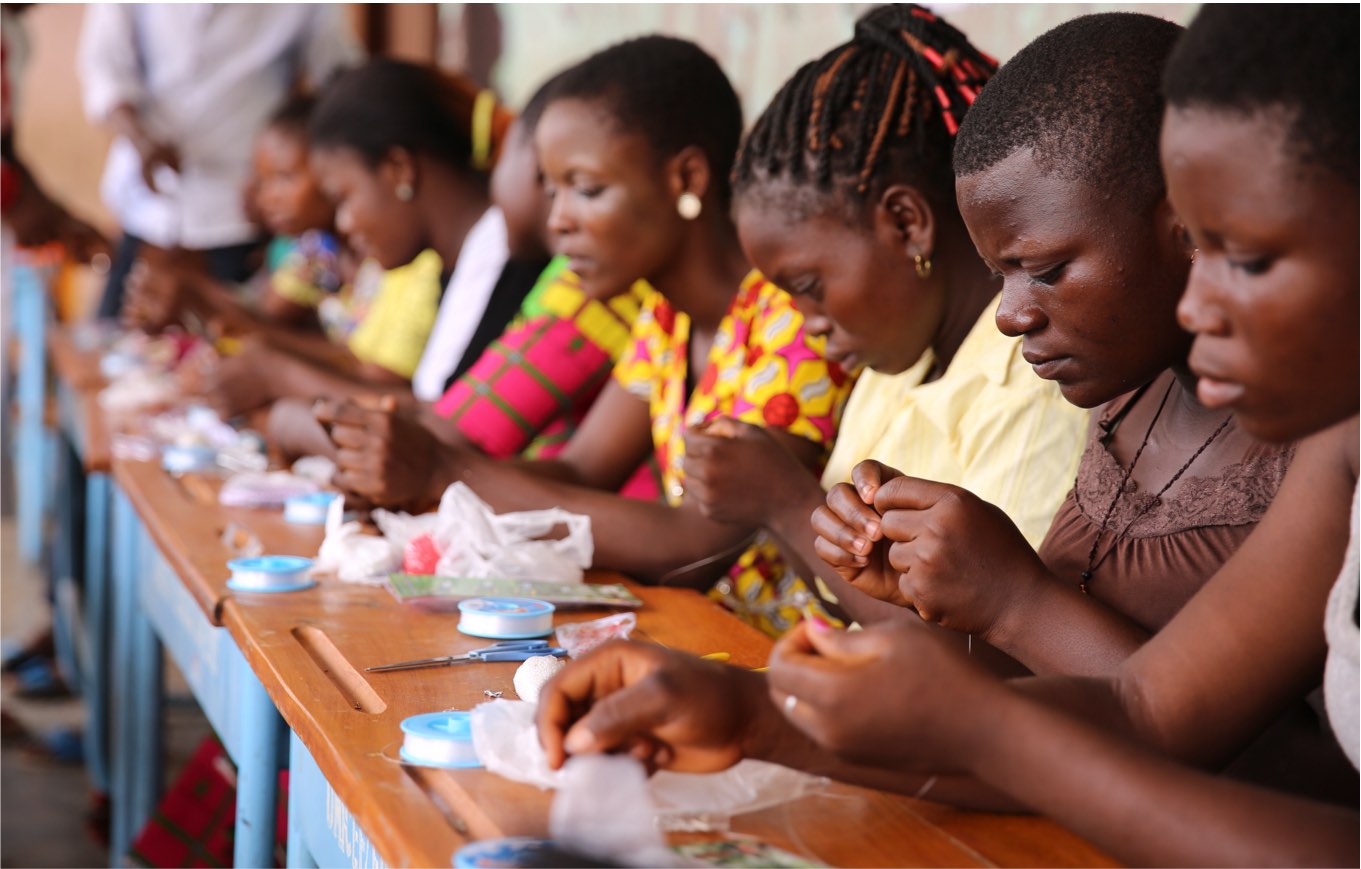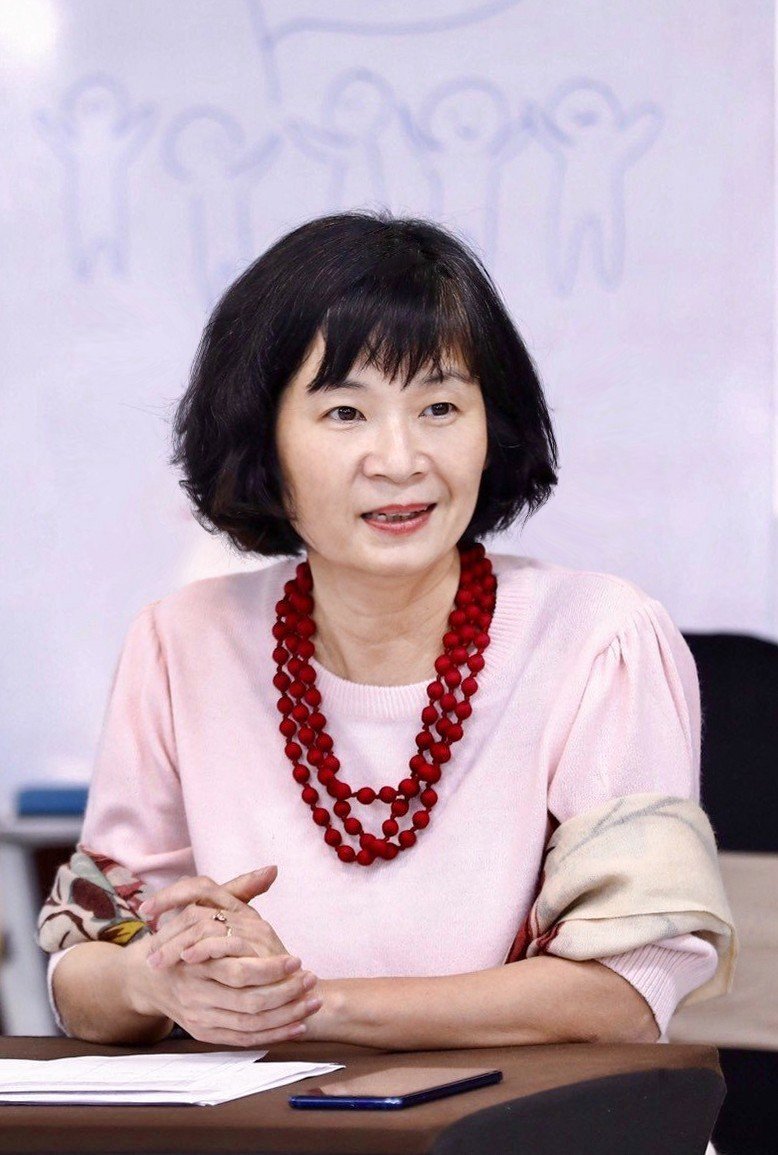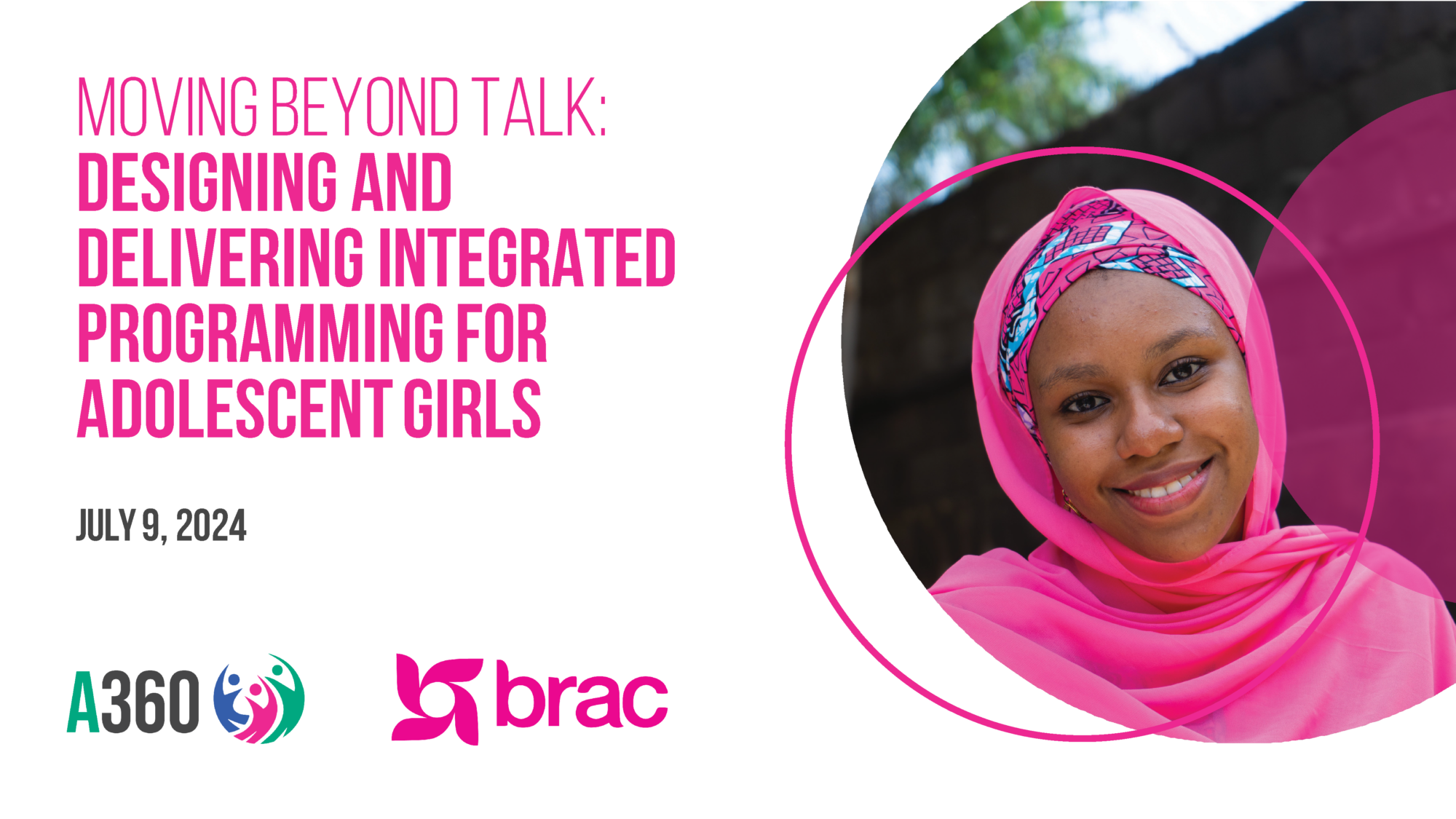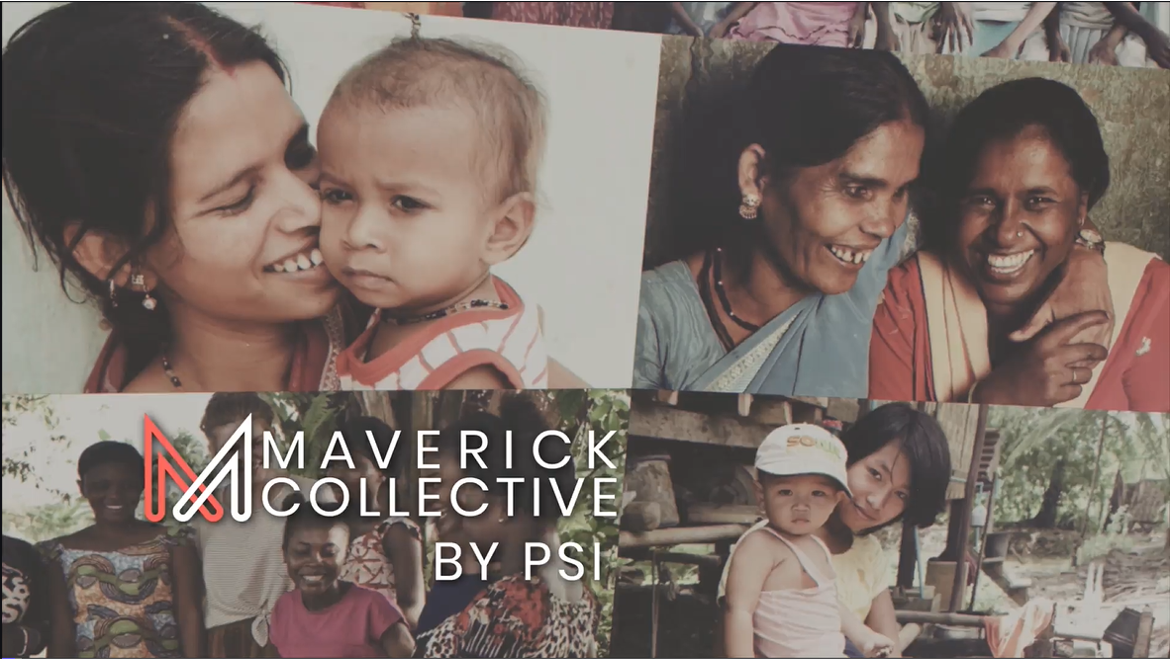
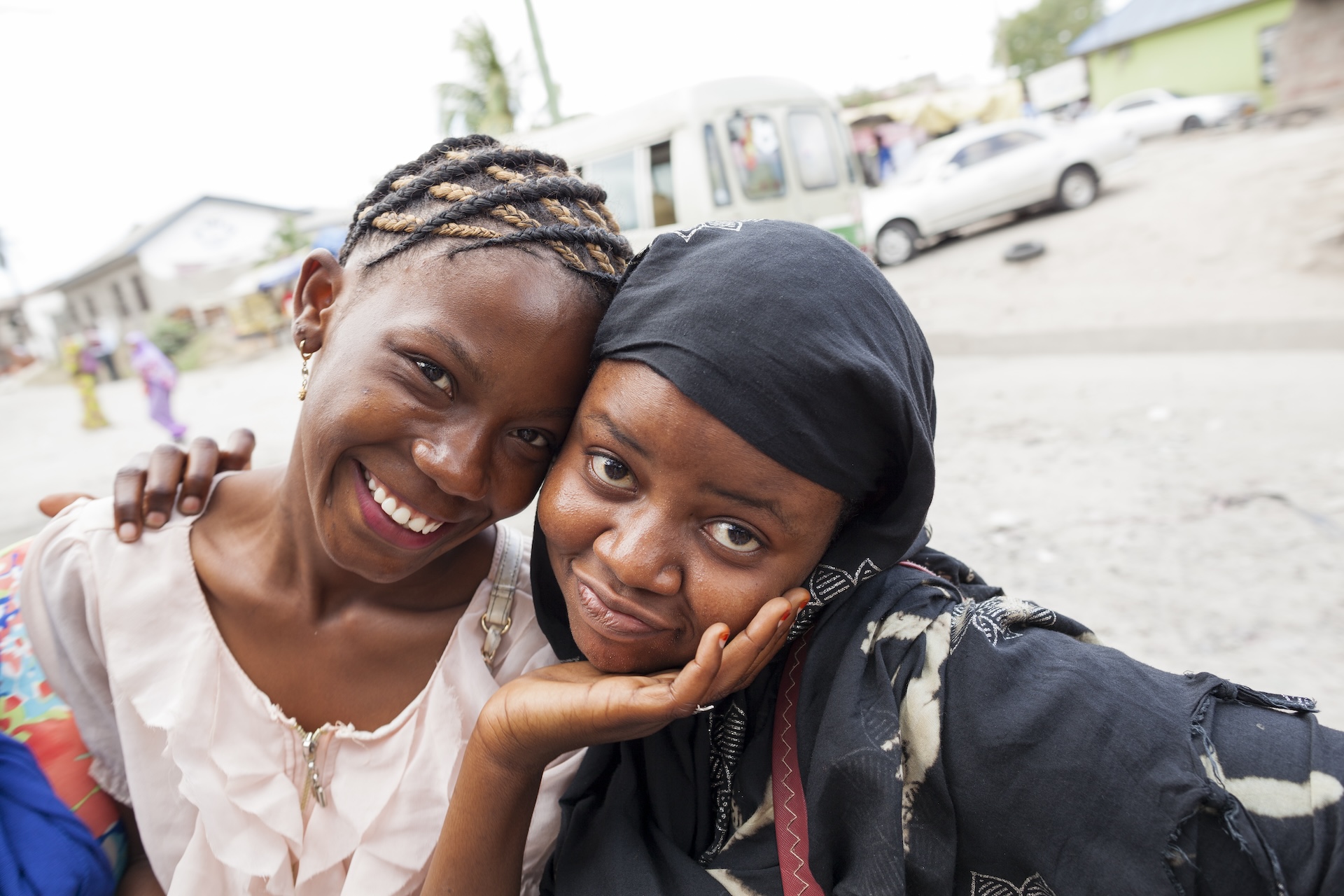
Youth in the Lead
Building Skills For Fuller Lives
From the Desk of Meghan
From Vietnam’s bustling capital, Hanoi, to the rural communities of Kilifi County in Kenya, these integrated approaches help young people achieve their dreams on their own terms.
Dear Maverick Community,
It is a pleasure to welcome you to this edition of ISSUE: Youth in the Lead.
At PSI, we believe everyone deserves the opportunity to be healthy and thrive. But we know that living healthier, fuller lives requires more than just access to quality healthcare—it also requires economic opportunity, life skills, and the tools to navigate broader social challenges. That’s why we are expanding our programs to integrate economic empowerment and life skills, ensuring young people can take control of their futures in every aspect of their lives.
In this ISSUE, we explore how two projects—across different geographies and socioeconomic landscapes—have partnered with youth and their communities to create solutions that transform not just individual lives, but entire communities and local economies.
From Vietnam’s bustling capital, Hanoi, to the rural communities of Kilifi County in Kenya, we co-designed programs with young people, combining quality contraceptive education with practical skills like financial literacy, event planning, marketing, vocational training, and decision-making. These integrated approaches help young people achieve their dreams on their own terms.
In both Love Voyage and Binti Biashara, we saw firsthand how centering young people in program design ensures these initiatives are not only relevant and resonant but also more effective in creating lasting impact. When we meet adolescents and young women where they are—addressing their real questions and needs—we empower them to thrive.
- Experience the transformational power of Love Voyage and Binti Biashara alongside Amy, Pi, Liv, Shelly, and the PSI project teams at the forefront of change.
- Gain insights from Master Class on how A360 is reshaping adolescent health programming through these innovative approaches.
- Dig deeper with Heart Homework on how thoughtful, youth-centered program design drives meaningful impact.
Economic autonomy is essential for social progress. As we navigate a shifting development landscape—one where gender equity and basic healthcare programs face growing threats—it is more critical than ever to invest in solutions that equip young people with the skills they need to lead healthier, more self-determined lives.
I hope you enjoy this ISSUE as much as we did creating it.
With gratitude,
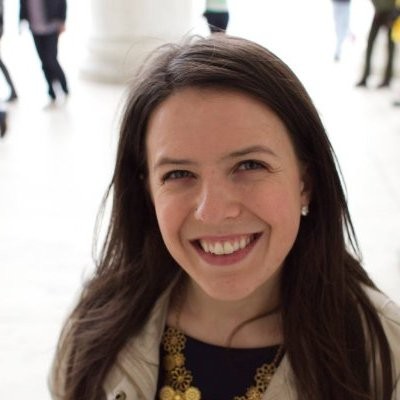
Episode 8 | Youth in the Lead
Tune in to Episode 8 of Maverick Beat to go behind the scenes with Maverick members Liv, Emma, Pi, Shelly and Amy and learn how projects in Kenya and Vietnam helped adolescent girls and boys manage their sexual and reproductive health, while also learning new skills to enable them to live the lives they desire.

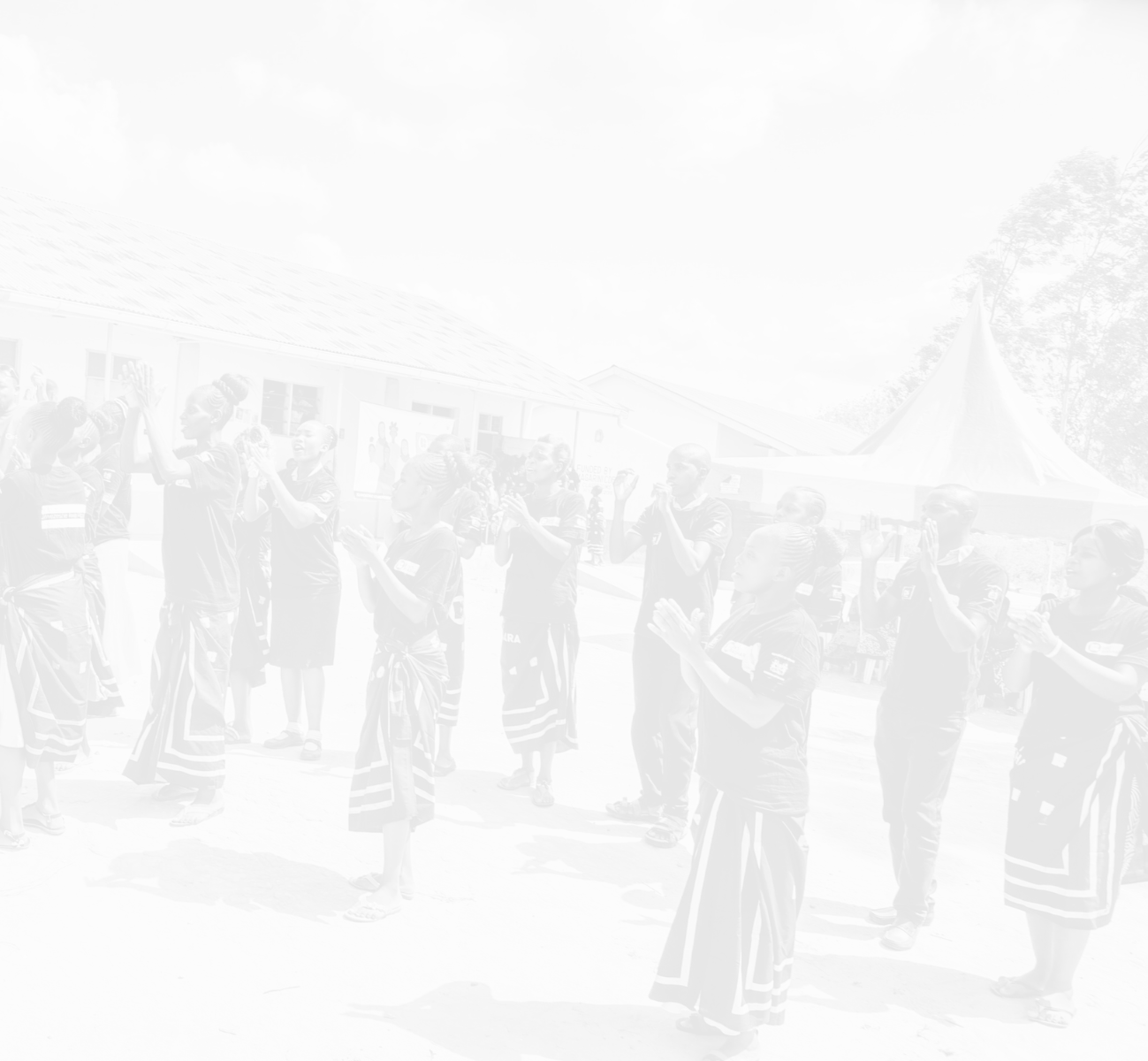
Pathways Out of Poverty
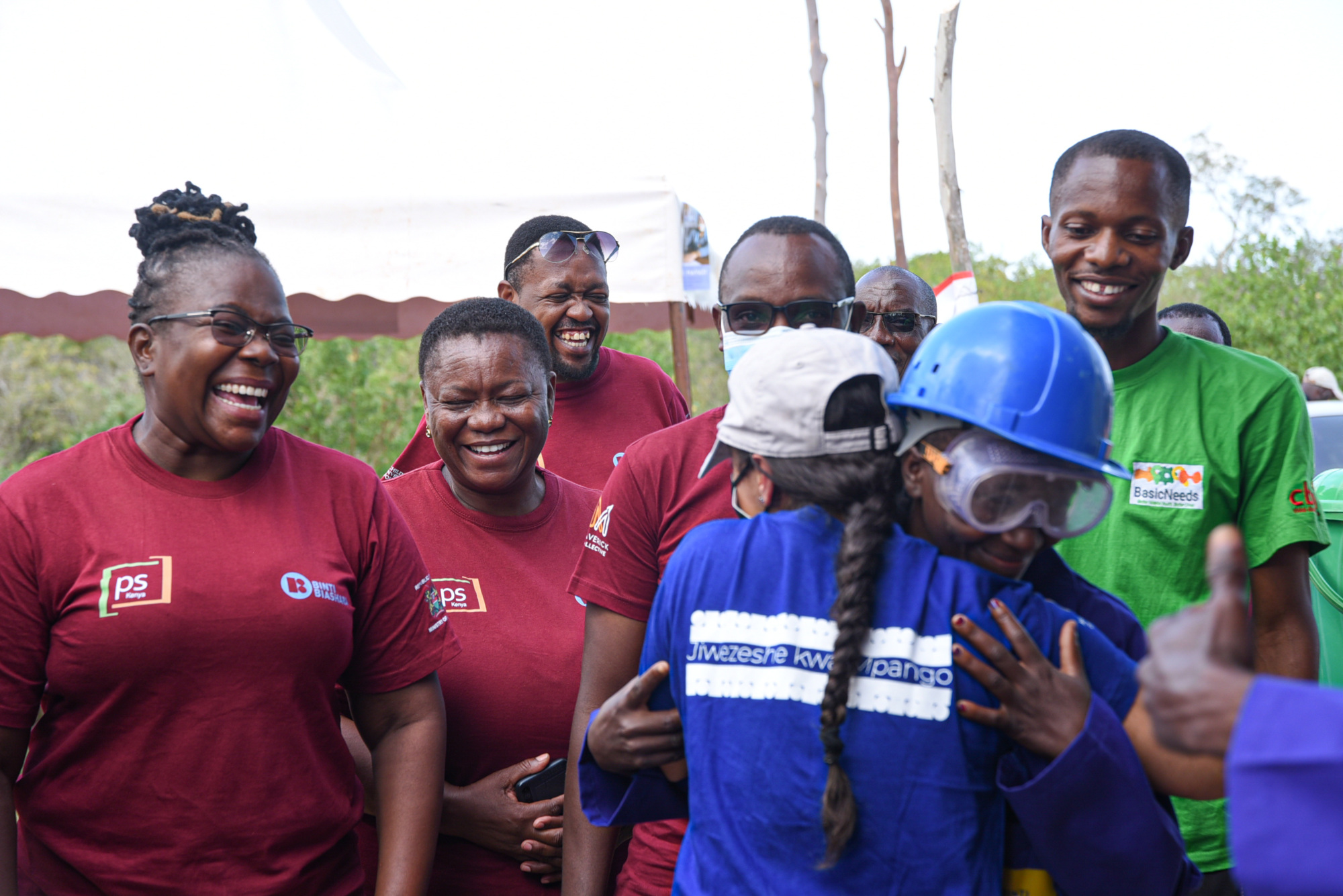
Maverick Beat | Ep. 8, Pt. 1: Binti Biashara 14 min
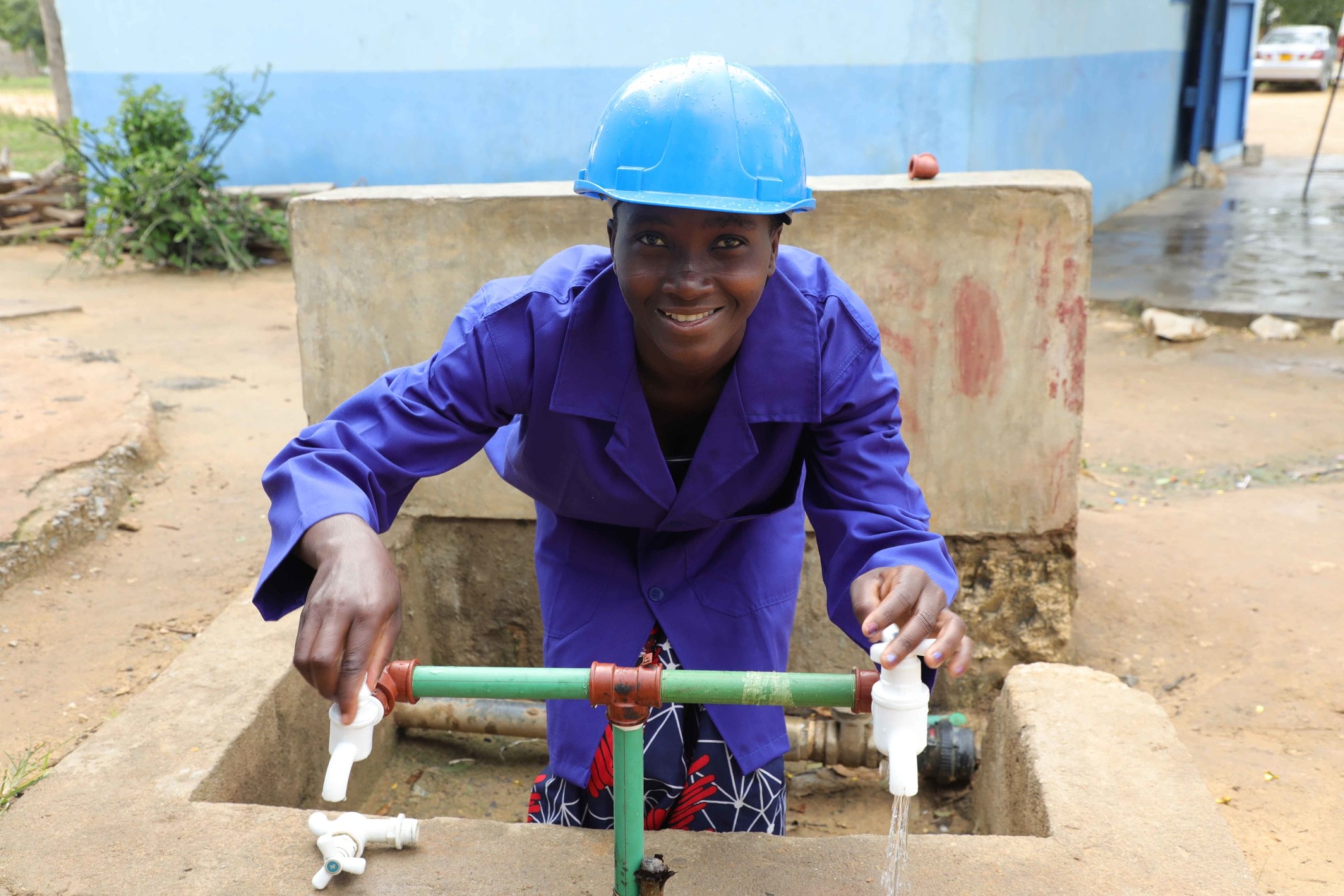
As a young mother, I had lost hope in life and was only staying at home. I didn’t have a future, but PS Kenya came through for me. They took me to school and empowered me with skills. I will perfect the skill, look for plumbing jobs, earn an income, and support my baby.This story was published in the PS Kenya Website
In Kenya, plumbing and masonry have for a long time been associated with the male gender. Many believe that such jobs are usually tedious and require someone with muscles to undertake them, but with more exposure, this notion is gradually being reversed, and we are now seeing women getting trained and taking such jobs.
An example is the story of Elizabeth Kazungu, a young mother from Marafa in Kilifi County and a beneficiary of the Binti Biashara project. When the project recruited and sponsored young mothers like her to undergo training at the local Marafa Technical and Vocational Education Training, many of her colleagues opted to train in hairdressing, tailoring, and catering, but she opted for the “difficult one”: plumbing.
When she enrolled at the school, many were shocked and never believed that she would manage to complete the course, but her instructor wouldn’t let her dream get shuttered, he kept encouraging her. He was proud of Elizabeth as she would be her first female student to train in plumbing. “I was glad to receive Elizabeth as my first female student to train in plumbing; throughout the training she was hardworking and put all her effort into learning. “I am sure that she will succeed in this career,” stated Mr. Mulewa, Instructor of Marafa Technical and Vocational Education Training.Throughout the course, she showed enthusiasm and was able to grasp even the complex ideas. Some of her friends would, at times, discourage her, but she was determined to the end. She religiously attended her classes, put more effort and was among the young mothers who graduated during her cohort’s graduation. If you looked for a plumber in Marafa today, she would probably be one of the plumbers that would come and sort out your plumbing issues.
“I am grateful to the Binti Biashara project. As a young mother, I had lost hope in life and was only staying at home. I didn’t have a future, but PS Kenya came through for me. They took me to school and empowered me with skills. I will perfect the skill, look for plumbing jobs, earn an income, and support my baby,” stated Elizabeth Kazungu.As the Binti Biashara project comes to an end, the story of Elizabeth will continue to inspire other girls to always believe in themselves. The project managed to empower over 500 young mothers, who benefited from the various skills that were being offered by the program. In addition, the program integrated sexual-reproductive health education to allow the young women to make informed sexual and reproductive health decisions.The Binti Biashara project was funded by Maverick Next, an affiliate of Population Services International, and implemented by PS Kenya in partnership with the County Government of Kilifi.
- 489 young mothers trained in Vocational Centers or by Community Mentors
- 79% of participants are contributing to family income
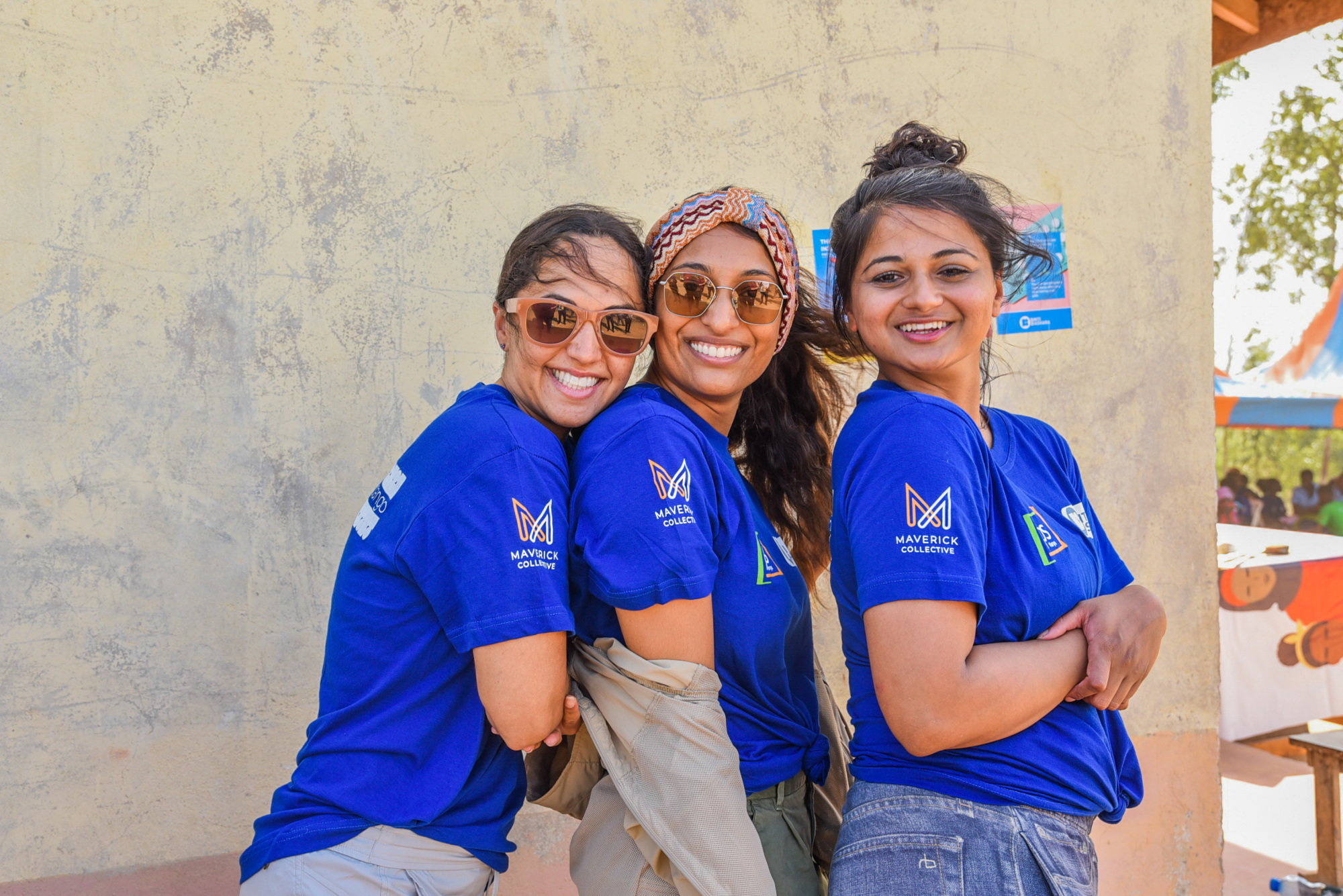
It's amazing to see the kind of ripple effect it is going to have. just within one generation how much has changed because of the training and the support that they're getting from Binti Biashara.Shelly
In Kilifi, one of the poorest counties in Kenya, girls are worried about sourcing their next meal, not their sexual and reproductive health.
Binti Biashara partnered with Vocational Training Centers and Community Based Mentors and Entrepreneurs to expose young mothers to new skills and prepare them for the local job market, while learning about their sexual and reproductive health and rights. The project helped young women feel more empowered to make decisions about their bodies, their futures, their finances and possible career paths.
In Kenya, as in other parts of Sub-Saharan Africa, adolescents face severe challenges to their lives and general well-being. While nearly all sexually active girls in Kilifi County report wanting to prevent pregnancy, 59%, of these adolescents did not have access to contraceptives when they needed them.
Social and cultural norms dictate that girls prove their fertility early, placing messages about contraception at odds with what society expects of them. With deep levels of poverty, girls are worried about sourcing their next meal, not their sexual and reproductive health. With few job opportunities, rates of transactional sex (sex in exchange for money or goods) are high among girls and young women.
To address this gap, The PS Kenya team developed Binti Biashara, a learning-based project that tested the impact of integrating economic empowerment and sexual and reproductive health (SRH) for young women in Kilifi County. The goal was to take a core SRH program and introduce components that may help young women feel more empowered to make decisions about their bodies, futures, finances, and possible career paths.
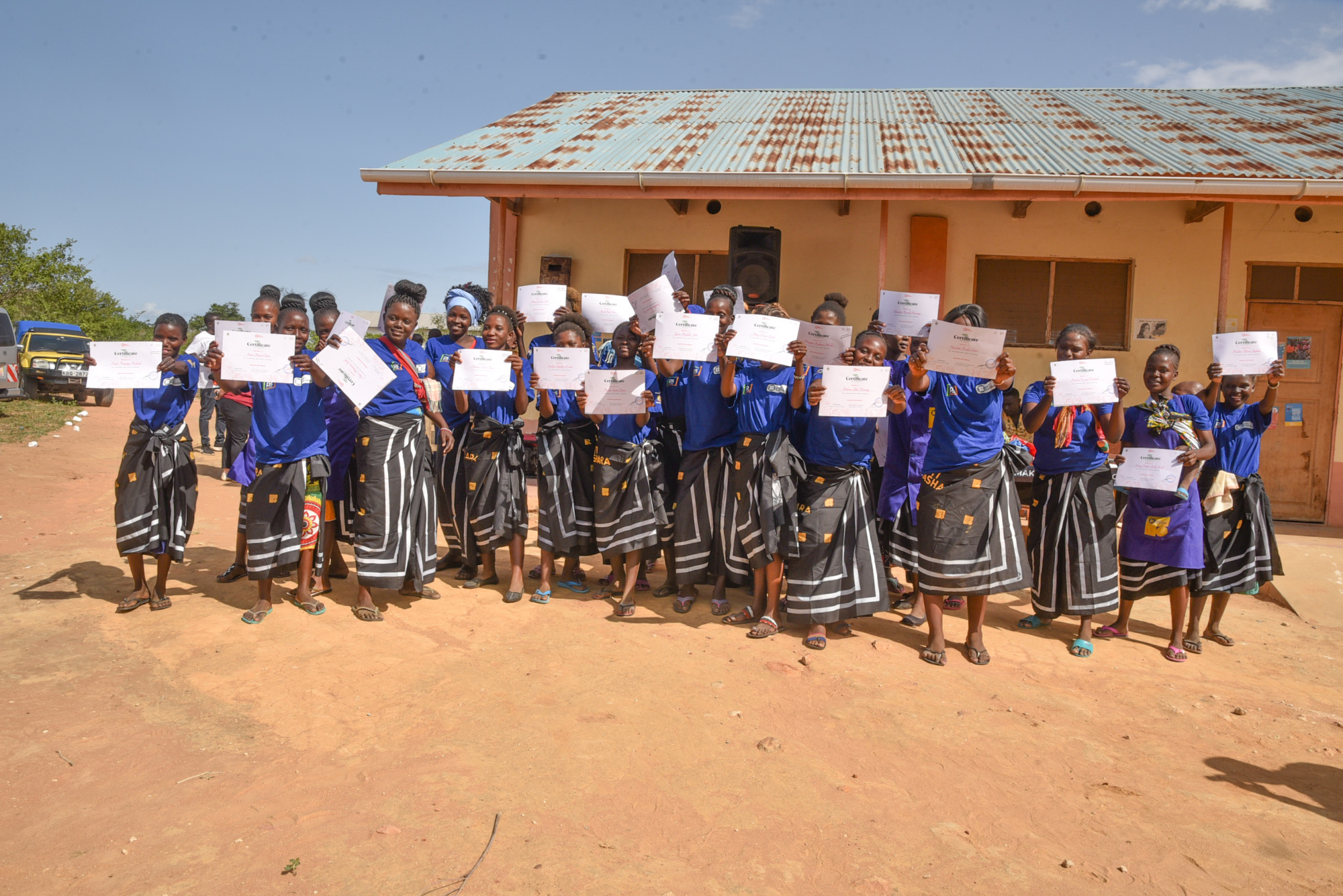
A celebration to remember
We got to attend one of the graduation ceremonies for the Pendos (project participants) and it was amazing to experience how involved the project team made us feel. ~Shelly

Not giving up
Our Director Christine Were said something to me that I'll never forget: "I will not give up on these girls, because I too have worn those shoes." I'll never be able to know really what it's like, but having the opportunity to get a tiny snapshot, and knowing that we've made an impact that will hopefully scale was really life changing. ~Liv
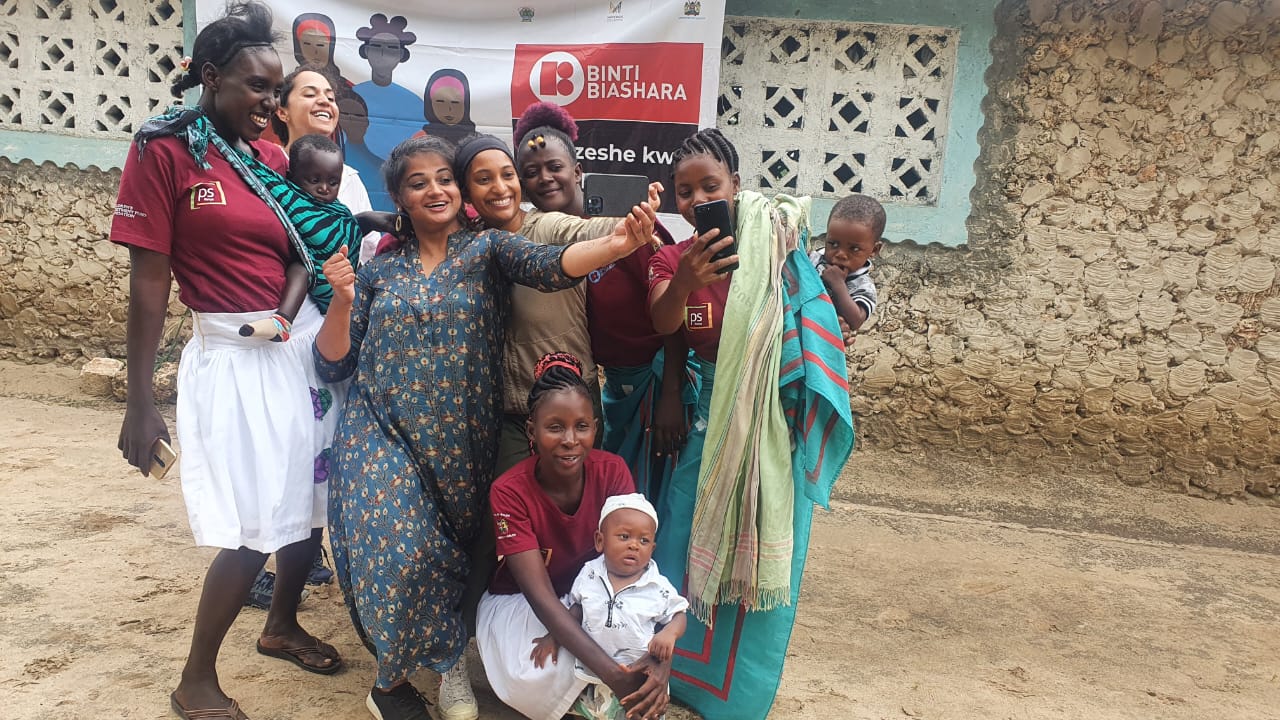
A family transformation
This experience has been transformational. In understanding how I want to engage in philanthropy, and maybe in helping me define what my role in philanthropy is within my family and our family foundation. ~Pi
1/3
Generational Change in Action
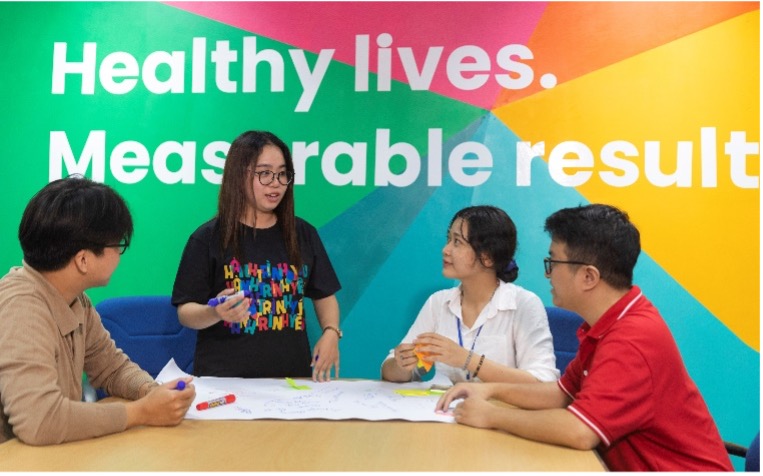
Maverick Beat | Ep. 8, Pt. 2: Love Voyage 12 min
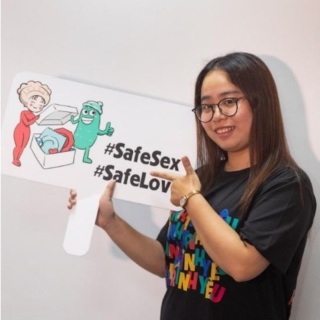
My friends and family now have another trustworthy, easygoing person to discuss SRH with, which is me!I often worried about myself or one of my friends/family members having an unintended pregnancy because it had happened to my own big sister and her first love.
There were so many reasons: her first love was a bad boy; she was afraid to learn about safe sex and she didn’t think she could get pregnant. I also witnessed my mom and dad, who are also first-time parents, experiencing all spectrums of emotion – surprise, anger, shame, worries, and pity for their child.
Thus, I decided to join the project not only to find ways to educate myself but also to share with my parents, my friends, and people around me about SRH, with the hope of normalizing the subject. Knowledge and information on safe sex, reproductive health, or contraception methods is not difficult to find but the culture of sharing and discussing with each other on these topics needs to be changed.
As a Youth Facilitator, I was trained and coached [by the project] to support other youth leaders in designing and organizing SRH events at their student clubs or youth organizations. I thought I had already had enough experience in event management, with my role as president of my university’s student association, but shortly realized that my critical thinking and event organization skills were still limited.
I learned from the project that we should not organize events just for the sake of it. We need to listen to the audience to really understand their needs and motivation to tailor the events as well as to build [M&E] activities to measure changes and to collect feedback for future improvement.
While working with the Love Voyage Ecosystem and project, I also had a chance to work and learn with GURU specializing in various fields i.e. health, psychology, and self-care. Not only has my knowledge in these fields improved but also my confidence in discussing them. My friends and parents now have another trustworthy, easygoing person to share and discuss about SRH, which is me.
- 12,135 youth participated in events
- 75% felt more confident in using contraception
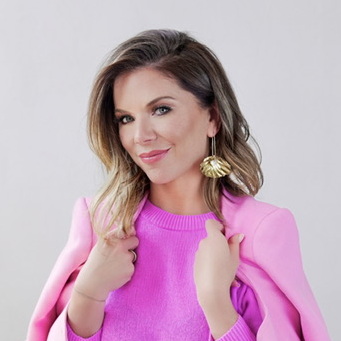
The secondary outcomes of this project were just as incredible. We created communities; we enhanced skills; we ignited future leaders. These youth facilitators who dedicated three years of their lives to this project led all of these workshops, developed all the materials, produced these events, and solicited sponsors - these are future leaders.Amy Dornbusch
PSI Vietnam partenerd with young people to make sexual and reproductive health education fun, interesting, and stigma-free. Through a human-centered design approach, the project created and nurtured a network of youth groups from local universities in Hanoi to co-design an event series bringing relevant and engaging content to youth on topics like sexuality, relationships, contraception, and more.
With a popular social media presence promoting the “Love Voyage Network”—and linkages to “guru” micro-influencers—the project reached over 22 million youth!
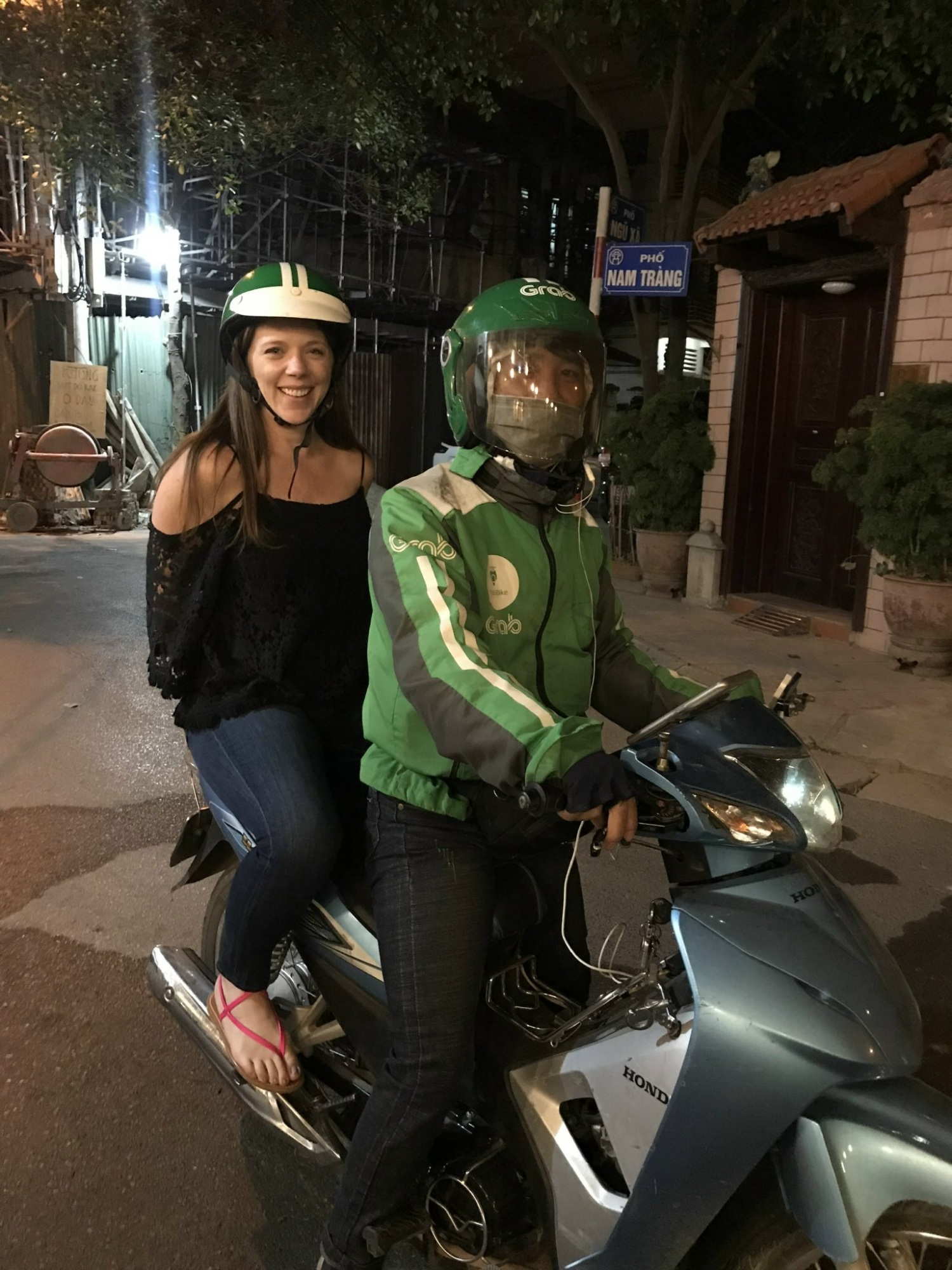
A unique experience
I was only able to go to Vietnam for the kickoff because of the pandemic. But luckily for me, I scooped up my three-year-old and my six-month-old, and we spent six weeks in Vietnam during the early days of the project. I was fortunate enough to present the project to over 50 stakeholders, meet with the local representative of UNFPA, participate in the workshops, meet our youth leader team and understand the context of our work. Not only did we have the pleasure of experiencing the beautiful country and culture of Vietnam, but spending several weeks with the project team established a personal and strong connection that served us well over the course of the three year project.
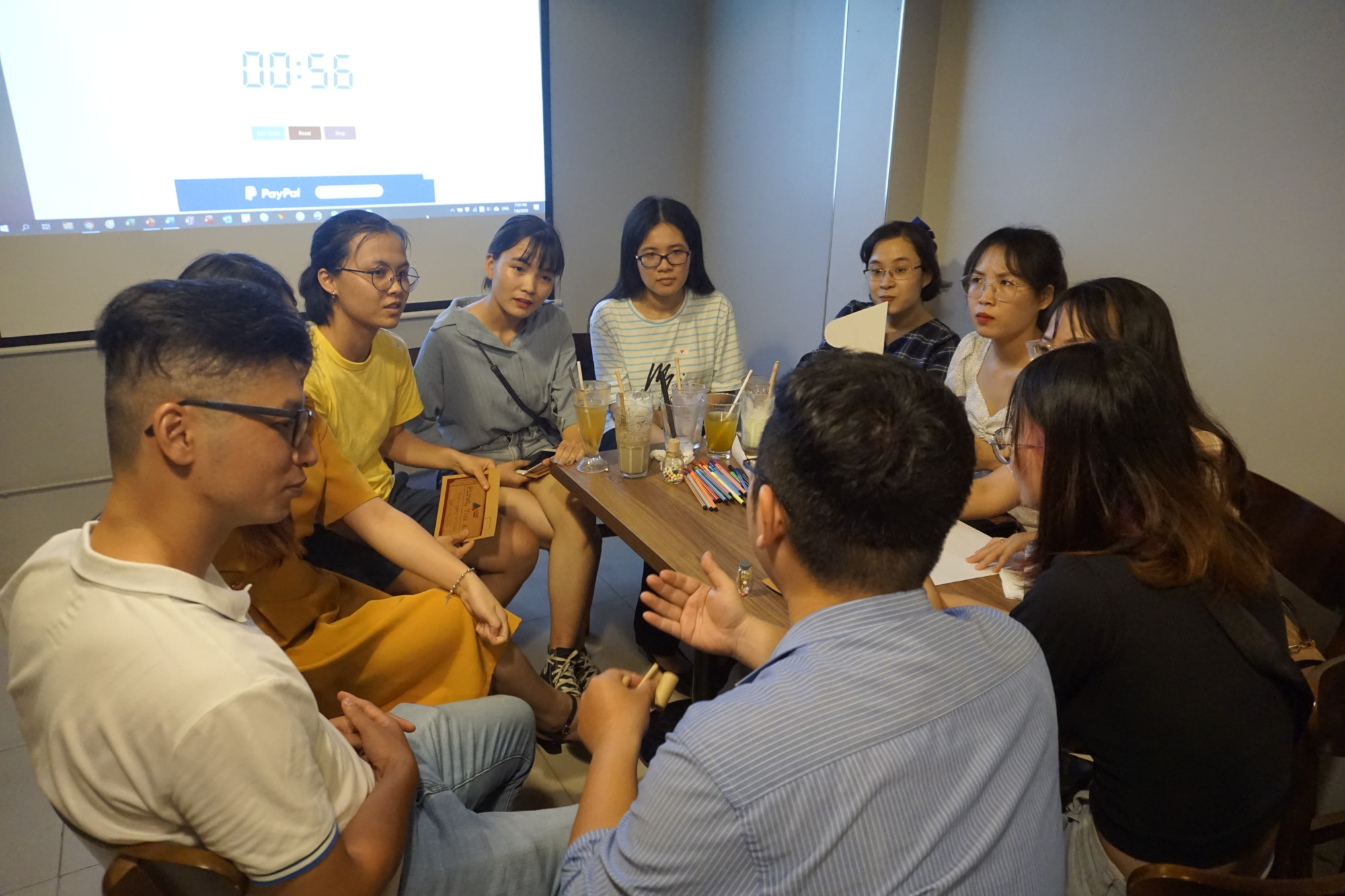
Listening to everyone
The workshops with the youth were incredibly eye-opening. I used these design workshops before in the corporate world, and it was just really incredible to see it being facilitated in an environment that was going to benefit from a philanthropic purpose.
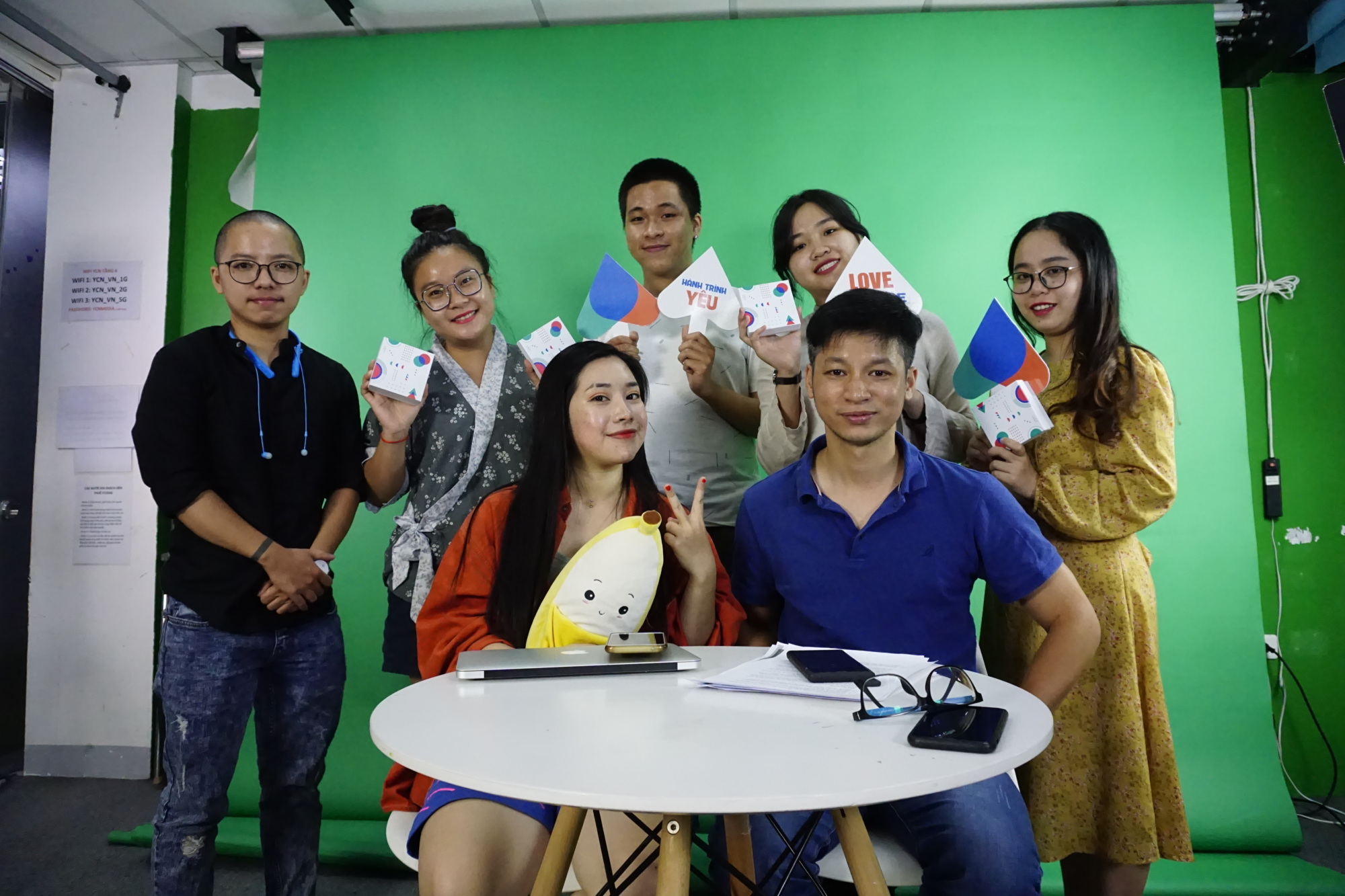
Meeting them where they are
The project used many channels to reach youth, including social media platforms and innovative formats like vlogs!
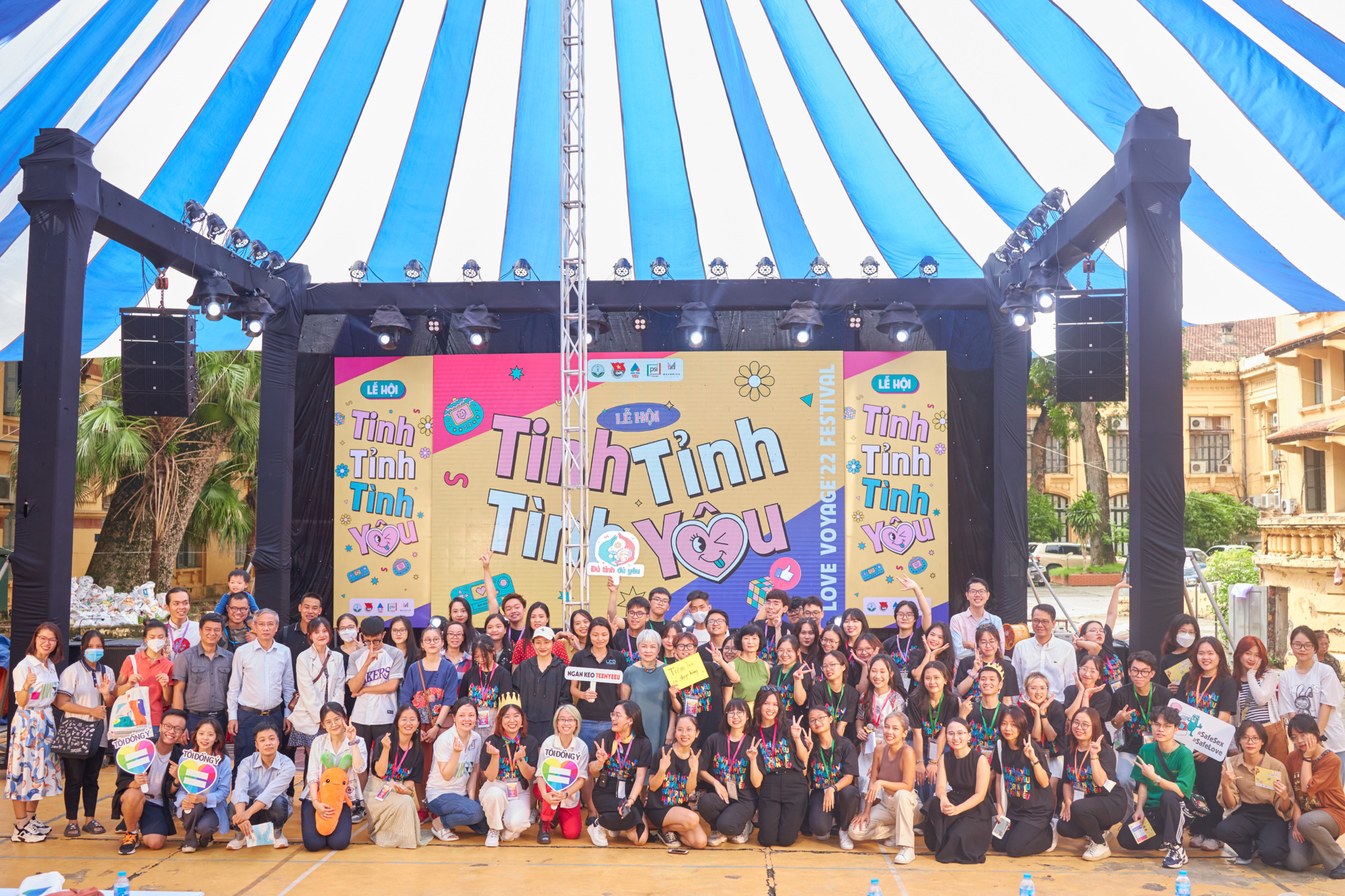
One big Celebration!
The youth involved in the project planned and executed the Love Voyage Festival for all of Hanoi. It was the first ever public event on social and reproductive health and rights. Partners and guests from all over, including civil society organizations, businesses, and government agencies came to support the day-long event with all community stakeholders where the youth showcased their skills and learnings for the community to enjoy.
1/4
Moving Beyond Talk: Designing and Delivering Integrated Programing for Adolescent Girls
Hosted by A360 and BRAC, this Master Class shares experiences and lessons learned in developing programs for adolescent girls that combine sexual and reproductive health with economic empowerment. In it, you can learn more about how PSI and BRAC established our partnership and utilized design thinking, girls’ perspectives, and evidence on what works in Ethiopia and Nigeria to “move beyond talk” in our commitment to multi-sectoral programming for girls.
Heart Homework
Dig deep and learn more -- in your own time and at your own pace.
-
Tips from the A360 Experts
Meghan shares her top 5 tips for designers engaging on integrated programming for girls' holistic needs.
-
Powering her potential: Results from year 1 of BRAC’s ambitious new program for African youth
Explore three big headlines from BRAC's partnership with the Mastercard Foundation, Accelerating Impact for Young Women (AIM).
-
A Resources Library
This Resource Library gathers our top resources, along with stories of our challenges, missteps, and wins, provided transparently for the benefit of the community of practice.
